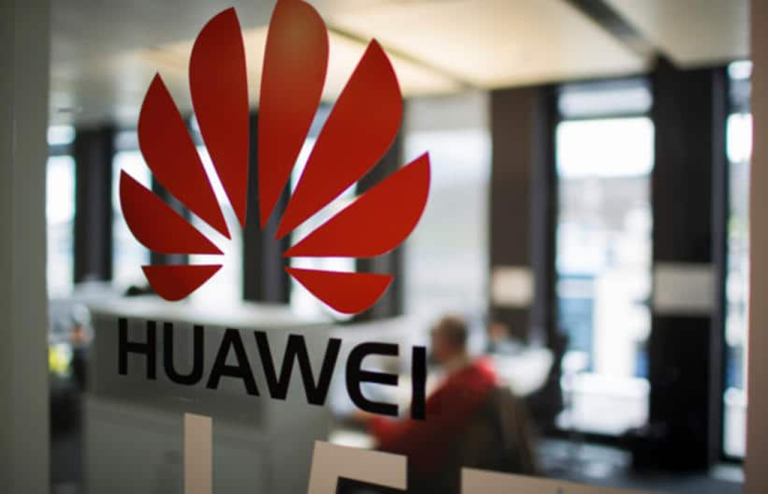
- Home
- Cyber stability
- 5G: The Constitutional Council validates “anti-Huawei” law
5G: The Constitutional Council validates “anti-Huawei” law


By Decision No. 2020-882 QPC of February 5, 2021, the Constitutional Council validated the « anti-Huawei » legislation challenged by the French telecom operators SFR, Bouygues Telecom and Free.
The provisions contained in Law No. 2019-810 of 1 August 2019, regarding the Prime Minister’s control over the deployment of 5G equipment are constitutional in that they safeguard the fundamental interests of the Nation and do not target any particular supplier or State.
As part of the appeal against Decree No. 2019-1300 of 6 December 2019, relating to the conditions of the prior authorisation to operate radio network equipment, Bouygues Telecom and SFR request the Conseil d’État to submit to the Constitutional Council a priority preliminary ruling on the issue of constitutionality (QPC) regarding Law No. 2019-810 of 1 August 2019. Said law is aimed at safeguarding France’s national security and defence interests in relation to operating mobile radio networks. Free mobile also joins the case as a company intervening with the Constitutional Council.
The priority preliminary ruling on the issue of constitutionality relates to the first sub-paragraph of paragraph 1 of Article L. 34-11 of the “Code des postes et des communications électroniques” (French mail and electronic communications code) and to the words « and the fact that the operator or its providers, including by sub-contracting, is under the control of or is subjected to acts of interference from a non-EU Member State » contained in the sub-paragraph 2 of Article L. 34-12 of the aforementioned code.
Position of the claimant companies
The claimant companies contest the obligation that is imposed upon electronic communications operators to be subjected to a scheme of prior administrative authorisation — for the sake of protection requirements for national security and defence — to operate equipment (such as base transceiver station) that grants access to mobile networks. According to the claimant companies, said authorisation scheme is not sufficiently supervised, given the encompassing nature of « national security and defence interests ». Due to technical constraints resulting from the lack of interoperability between devices, the companies have to replace all or part of their equipment that has been installed as part of previous generation networks. According to them, such excessive burdens are in fact aimed at preventing operators from buying 5G devices from the Chinese company Huawei, thus disregarding their freedom of enterprise. Such constraint restricts them in their choice of an equipment manufacturer and penalises those companies that turned to said company for their older equipment. The electronic communications operators are required to replace their equipment at their own expense, which results in disproportionate costs. The State should bear said costs as it imposes rules for the sake of national security, thus leading to an unequal discharge of public burdens.
In addition, the claimant companies point out that, as of 1 October 2021, an authorisation is already required for some of the relevant equipment, pursuant to Article 226- 3 of the French Criminal Code. By introducing a new scheme of prior authorisation, the law infringes upon legally recognised situations and on the operators’ legitimate expectations of staying subjected to the sole provisions of said Article 226-3.
Then, the fact that the authorisation can only be granted as long as the operator or its providers are not under the control of a foreign State nor subjected to acts of interference from said State results in having to select equipment because of its manufacturer’s situation and not because of its inherent characteristics.
The Constitutional Council’s response
The law does not target anyone in particular.
First, the Constitutional Council wishes to reiterate that it is lawful to restrict the freedom of enterprise on the basis of constitutional requirements or the public interest, provided that it does not cause disproportionate violations with respect to the objective pursued. The level of safety of the devices, the conditions under which their deployment and their operation are planned by the operator , and the lack of control on or interference in the operator, its providers, or its sub-contractors, from a non-EU Member State all safeguard national security and defence interests and protect the mobile radio networks against any risk of being spied on, hacked, or sabotaged that can result from the new functionalities offered by the fifth generation of cellular networks, whenever the functions of the devices pose a risk to the permanence, integrity, security, or availability of the network or to the confidentiality of sent messages and communication-related information. The law did not target any operator or provider in particular, nor the devices of a particular manufacturer, but it aimed at safeguarding the fundamental interests of the Nation.
Safeguarding the fundamental interests of the Nation
The authorisation scheme only applies to companies that operate an electronic communications network for the public and are thus designated by administrative authorities as ‘operators of vital importance’ because they operate equipment without which the Nation’s war potential, economic capacity, security, and ability to survive would be greatly diminished. Therefore, such companies are required to participate in the protection of said equipment against any threat (Article L. 1332-1 of the French Defence Code) An authorisation is only required to operate on the national territory devices that connect end users’ terminals to the mobile radio networks older than the fourth generation. Said authorisation can only be refused if the Prime Minister considers that there is a major risk to the national security and defence interests due to insufficient guarantees of compliance with the rules relating to the permanence, integrity, security, or availability of the network or relating to the confidentiality of sent messages and communication-related information. Thus, such provisions impose constitutional requirements that are inherent to the safeguard of the fundamental interests of the Nation.
The operators shall bear the costs
For operators, the provisions of the law may entail costs arising from the need to replace some of the old devices to ensure their compatibility with the devices whose operation is subjected to the contested authorisation scheme. However, those costs result from the choice of equipment and suppliers that was initially made by the operators and cannot therefore be chargeable to the State. The prior authorisation to operate some of the devices protects the communication networks. It is directly linked to the activities of the operators that use and operate the networks as they provide electronic communications services to the public. Due to their nature, the costs incurred are therefore to be borne by the operators as the State did not make any private entity liable for costs that would be incumbent on the State.
Lack of infringement upon legally recognised situations
The authorisation scheme put forward by the Prime Minister only applies to new equipment that is installed to deploy the 5G network. Previous generations, including 4G, are therefore not impacted. Neither are the authorisations to operate on frequencies held by those companies that operate the aforementioned networks. Therefore, the contested provisions do not infringe upon any legally recognised situation.
Before the law was enacted, electronic communications operators were subjected to an authorisation scheme applicable to the possession and operation of certain devices, provided for in Article 226-3 of the French Criminal Code.
The decision of 11 August 2016 (Article 1), which was issued to enforce Article 226-3, provides that the rules imposed by said article shall only apply as of 1 October 1 2021 to « those devices with which the electronic communications operators connect their clients’ equipment to their mobile radio networks open to the public, when such devices offer functionalities that can be remotely configured and activated and are able to duplicate clients’ communications, with the exception of devices that are installed in the clients’ homes. » The objective pursued in Article 226-3 of the French Criminal Code differs from that of the contested law. The aforementioned article is aimed at supervising the possession and operation of certain devices, due to the harm they can cause to privacy and to the confidentiality of communications. The aforementioned law applies to equipment that makes the connection to a cellular network possible, due to the harm it may cause to the national defence and security interests.
Law No. 2019-810 of 1 August 2019 excludes from the scope of said article those devices used by operators that are subjected by the Prime Minister to the new authorisation scheme. According to the Constitutional Council, being subjected to an authorisation scheme that pursues specific objectives cannot create the legitimate expectation that no other new scheme authorisation pursuing other objectives will ever be introduced. The new scheme only applies to equipment that grants access to cellular networks older than the fourth generation, so as to meet the security challenges specific to those new networks. The electronic communications operators cannot legitimately expect, on the sole basis of the authorisation scheme resulting from Article 226-3 of the French Criminal Code, that rules relating to the operation of devices that make the connection to next generation networks possible will not be imposed, even before 1 October 2021, to safeguard national security and defence interests.
the newsletter
the newsletter



